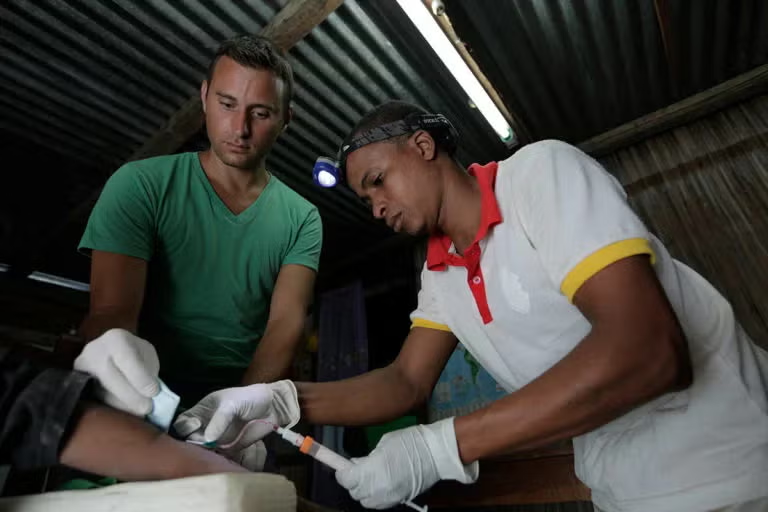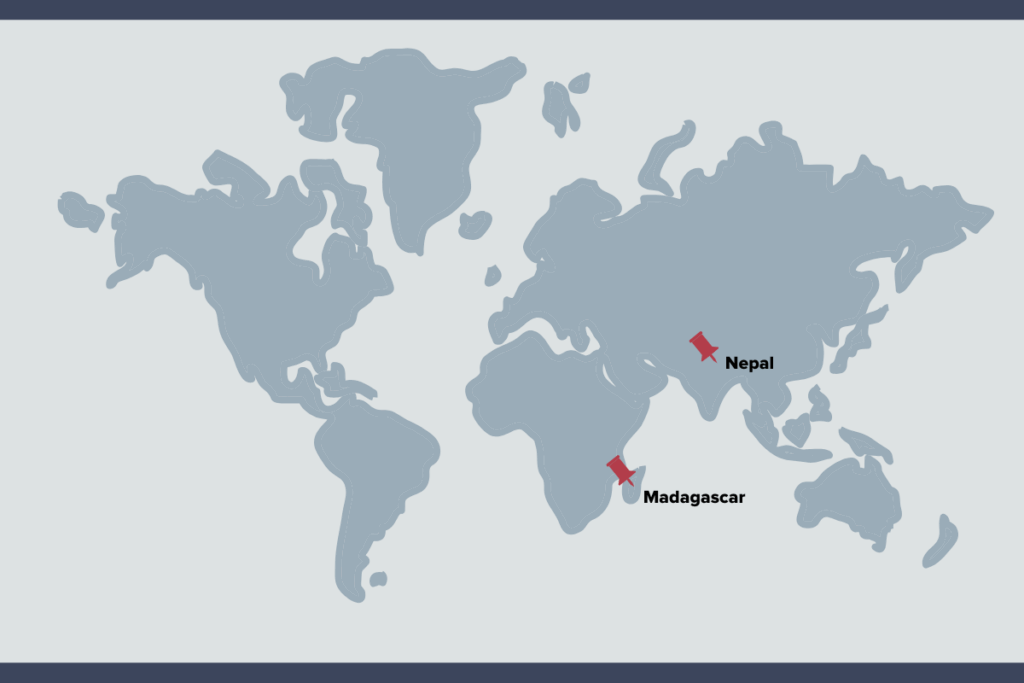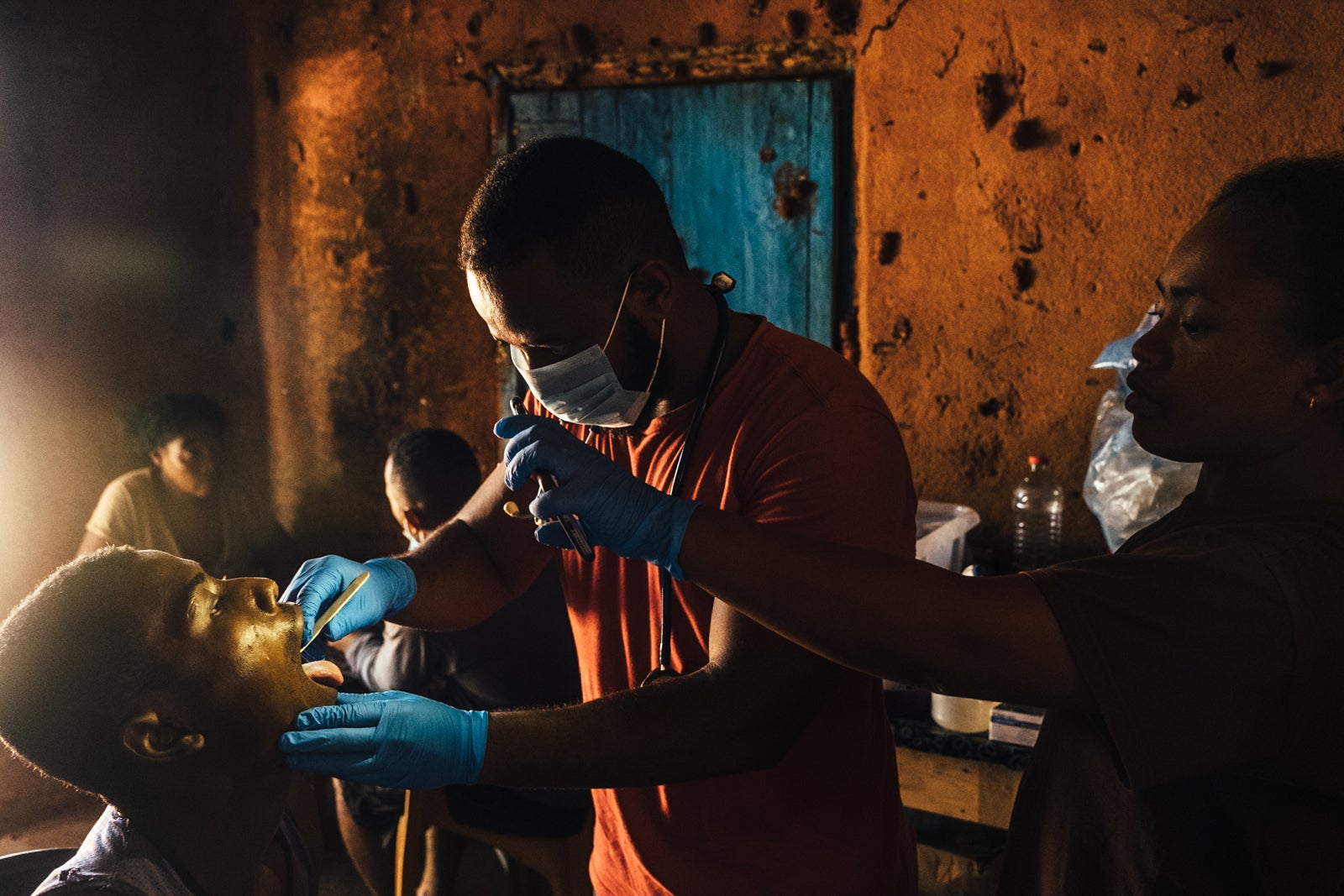Center for Climate, Health, and the Global Environment
We seek climate solutions that can provide for a healthier and more just world today and a livable future for our children.
Building 1, Room 1312
Climate-Smart Public Health
Impact level: Communities
Location: Madagascar and Nepal

What problem are we trying to solve?
Until now, systems that collect public health information haven’t been connected to data about the climate and environment, making it difficult to anticipate how changes in the climate and environment impact people’s health. If we bring these different types of data together into one platform, researchers and public health practitioners can better understand how climate and environmental changes lead to infectious diseases, chronic health conditions, and issues related to nutrition and mental health. Once we understand these connections, we can develop early warning systems and help public health measures work more efficiently and be more responsive to climate change.
What climate and health solutions are we researching?
We are developing an integrated research data platform that combines climate, environmental, agricultural, and health data to bring “Climate-Smart Public Health” into real-world settings. This approach uses advanced data science methods to examine connections between climate stressors and health outcomes. Some examples include:
- Monitoring droughts to assess the risk of crop failures and associated malnutrition
- Detecting harmful algal blooms and monitoring for marine food poisoning
- Tracking cyclone impacts on food insecurity and mental health
- Measuring how climate fluctuations impact respiratory conditions like asthma
- Evaluating how disease patterns change across seasons and different climate zones
- Assessing how changes in temperature, rainfall, and soil moisture affects the spread of vector-borne diseases
What’s the level of impact?
This research gives public health decision makers critical information to anticipate, prepare for, and respond to climate-related health risks. The platform enables early warning systems and evidence-based solutions that can protect entire communities and populations from health threats linked to climate change.
Who will this research benefit?
This research will benefit all communities exposed to climate-related health risks, public health officials and policymakers who need data-driven tools for decision-making, and researchers studying climate-health connections globally.
Who are the collaborators, key partners, and stakeholders?
The research is primarily driven by Harvard T.H. Chan School of Public Health and the Harvard Data Science Initiative, partnering with four governmental ministries in Madagascar: Public Health, Environment, Agriculture, and Fisheries and the Blue Economy. Additional collaborators include local research and health institutions in Madagascar and partner universities across the United States.
Where is the research happening?

What data resources can people use as a result of this project?
The project will provide integrated climate-health data platforms, analytical frameworks for examining climate-health connections, and methodological approaches that can be adapted for use in regions with similar climate-health challenges. We aim for all of these resources to be connected with DHIS-2 data and other forms of health surveillance information, and to be easily adapted and shared.
Learn more
To get in touch with the research team, contact Anna Miller.
